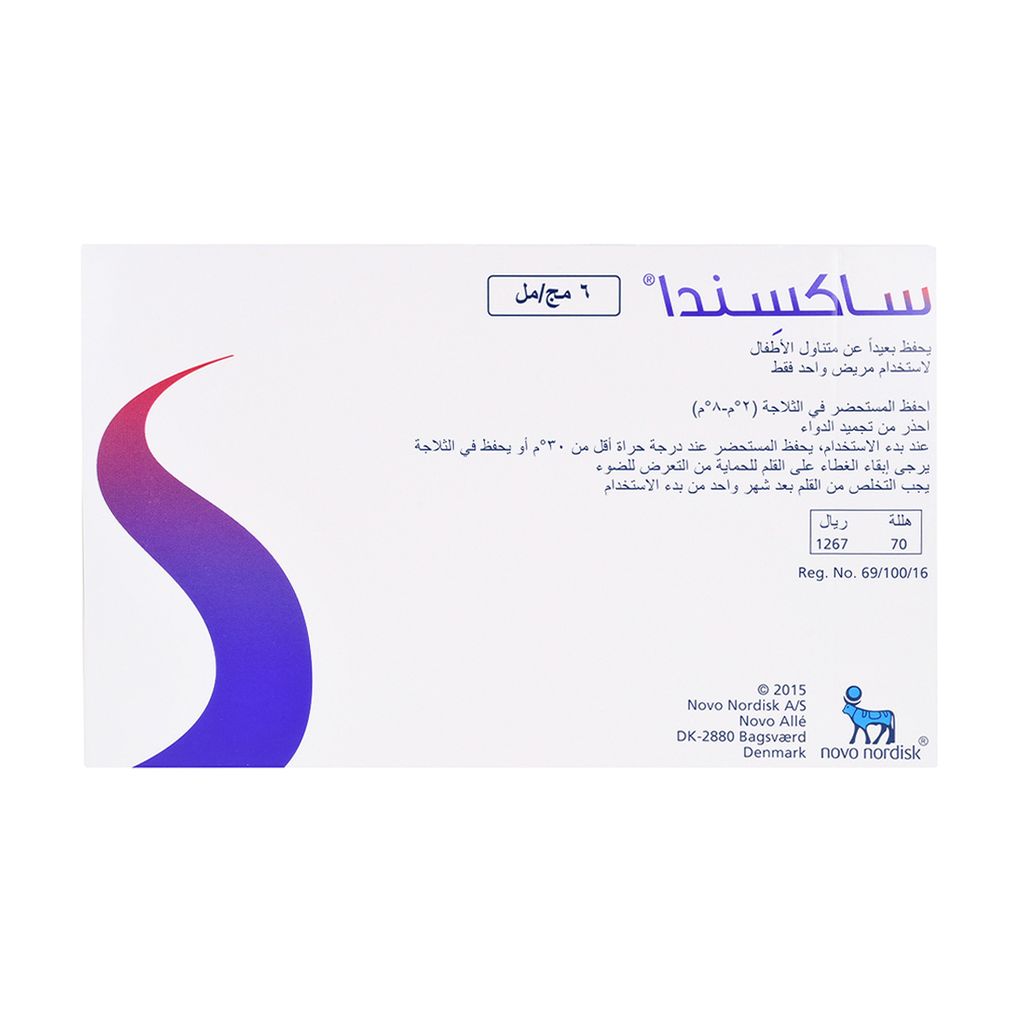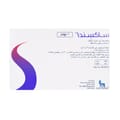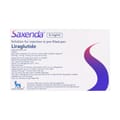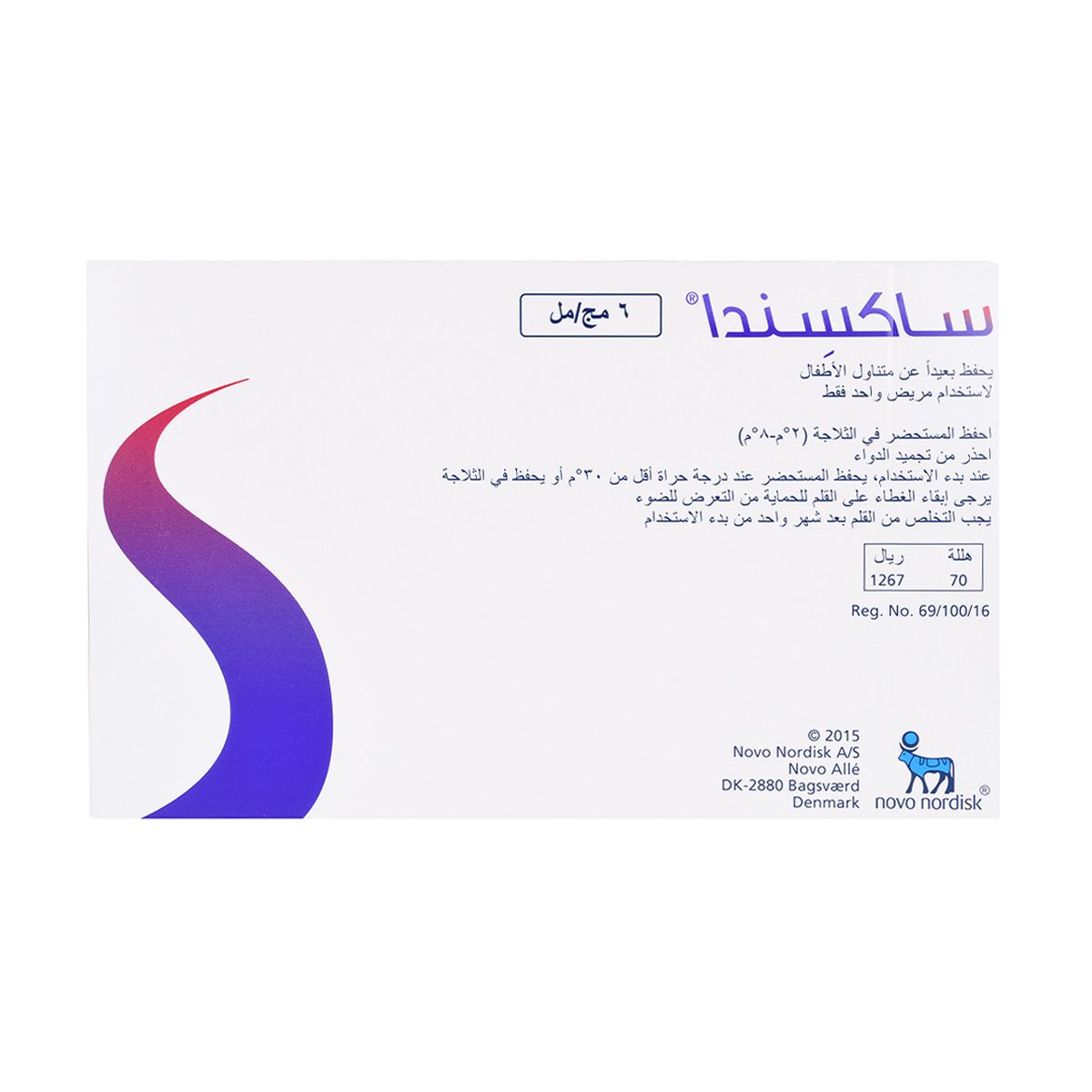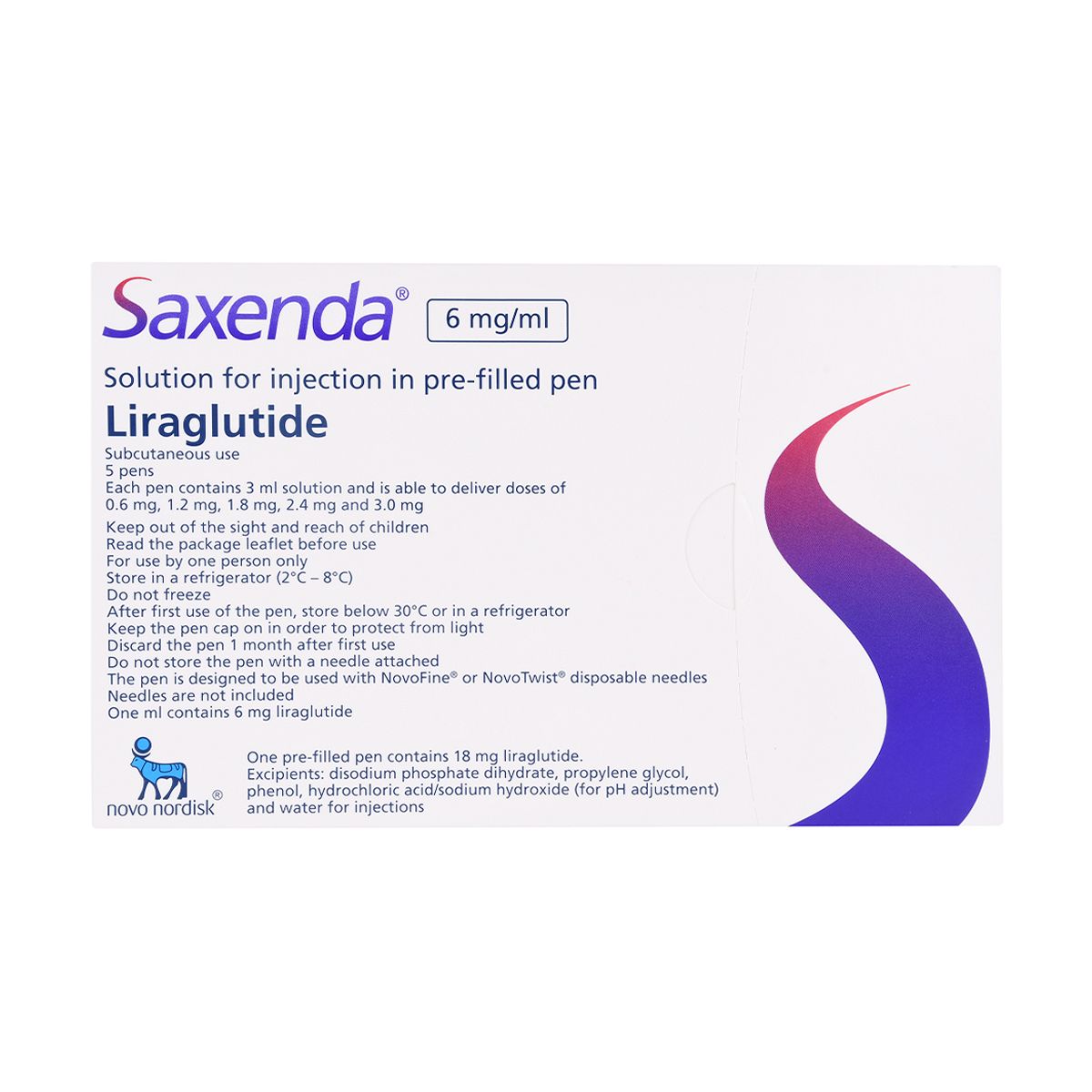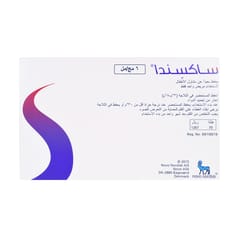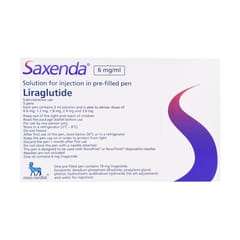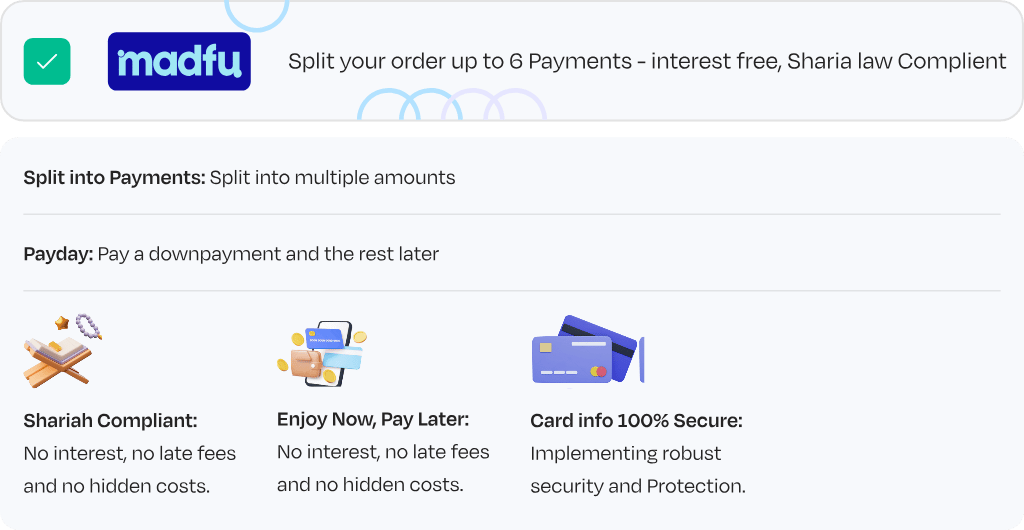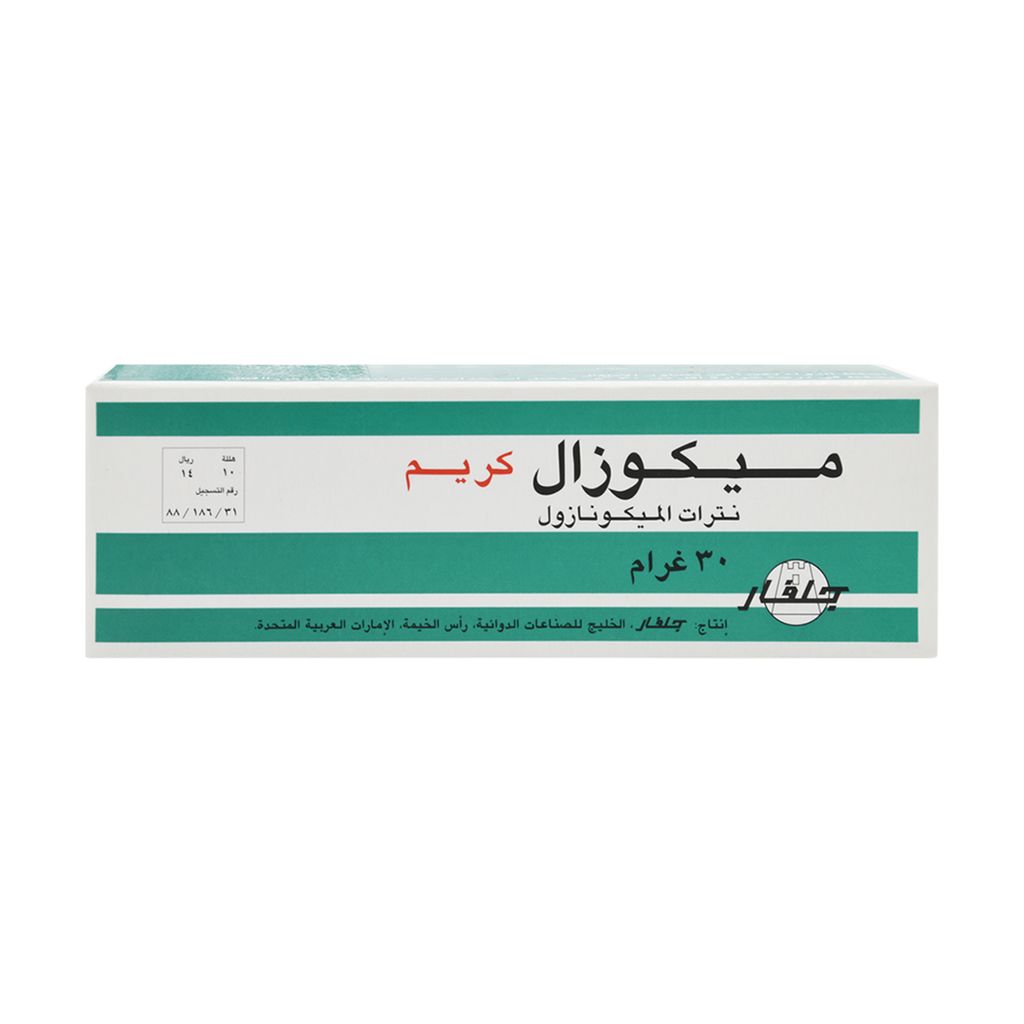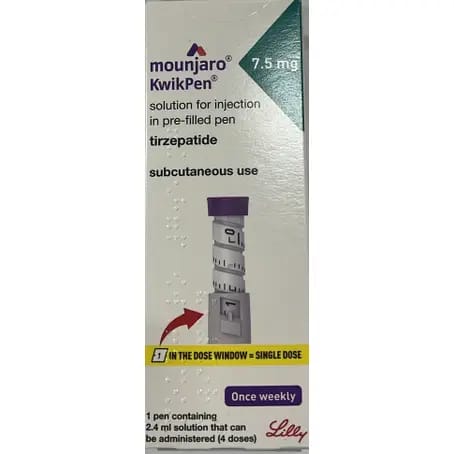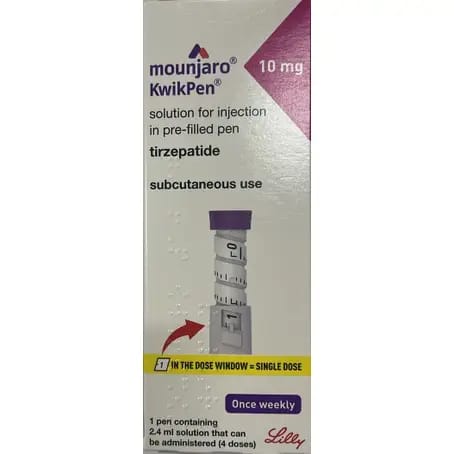What Liraglutide is used for:
- Liraglutide is used for weight loss in addition to diet and exercise in adults aged 18 and above who have
- a BMI of 30 kg/m2 or greater (obese) or
- a BMI of 27 kg/m2 and less than 30 kg/m2 (overweight) and weight-related health problems
- (such as diabetes, high blood pressure, abnormal levels of fats in the blood or breathing
- problems during sleep called ‘obstructive sleep apnoea’).
- You should only continue using Liraglutide if you have lost at least 5% of your initial body weight after 12 weeks on the 3 mg/day dose. Consult your doctor before you continue.
- Your doctor will start you on a diet and exercise programme. Stay on this programme while you are using this medication.
Do not use Liraglutide
If you are allergic to liraglutide or any of the other ingredients of this medicine.
Warnings and precautions:
Talk to your doctor or pharmacist before taking liraglutide if you:
- have severe heart failure
- are 75 years or older
- have kidney disease or are on dialysis
- have liver problems
- have a severe stomach or gut problem which results in delayed stomach emptying (called gastroparesis), or if you have an inflammatory bowel disease.
- have diabetes, do not use Liraglutide as a replacement for insulin
- have or have had a disease of the pancreas
- experience severe pain in your upper abdomen, usually worst on the right side under the ribs
- have thyroid disease, including thyroid nodules and enlargement of the thyroid gland
- have palpitations (you feel aware of your heartbeat) or if you have feelings of a racing heartbeat while at rest during Liraglutide treatment.
Possible side effects:
These include some severe allergic reactions (anaphylaxis), cases of inflammation of the pancreas (pancreatitis), severe and persistent pain in the abdomen (stomach area) which might reach through to your back, as well as nausea and vomiting. Feeling sick (nausea), being sick (vomiting), diarrhea, constipation – these usually go away after a few days or weeks.
Other medicines and Liraglutide:
Tell your doctor or pharmacist if you are taking:
- medicines for diabetes called ‘sulfonylurea’ (such as glimepiride or glibenclamide) or if you are taking insulin – you may get low blood sugar (hypoglycaemia) when you use these medicines with Liraglutide. Your doctor may adjust the dose of your diabetes medicine to prevent you from getting low blood sugar. If you adjust your insulin dose your doctor may recommend you to monitor your blood sugar more frequently.
- warfarin or other medicines by mouth that reduce your blood clotting (anticoagulants). More frequent blood testing to determine the ability of your blood to clot may be required.
How to use Liraglutide:
- Your treatment will start at a low dose which will be gradually increased over the first five weeks of treatment.
- When you first start using Liraglutide, the starting dose is 0.6 mg once a day, for at least one
- week.
- Your doctor will instruct you to gradually increase your dose by 0.6 mg usually each week until you reach the recommended dose of 3.0 mg once a day.
- Once you reach the recommended dose of 3.0 mg in week 5 of treatment, keep using this dose until your treatment period ends. Do not increase your dose further.
- Your doctor will assess your treatment on a regular basis.
- Before you use the pen for the first time, your doctor or nurse will show you how to use the pen.
- You can use Liraglutide at any time of the day, with or without food and drink.
- Use Liraglutide at about the same time each day – choose a time of the day that works best for you.
- The best places to inject are the front of your waist (abdomen), the front of your thighs or your upper arm.
- Do not inject into a vein or muscle.
- Do not mix Liraglutide up with other medicines that you inject (e.g. insulins).
- Do not use Liraglutide in combination with other medicines that contain GLP-1 receptor agonists (such as exenatide or lixisenatide).
How to store Liraglutide:
- Keep this medicine out of the sight and reach of children.
- Do not use Liraglutide after the expiry date which is stated on the pen label and carton after ‘EXP’. The expiry date refers to the last day of that month.
- Before first use: store in a refrigerator (2°C to 8°C). Do not freeze. Keep away from the freezer compartment.
- Once you start using the pen: you can keep the pen for 1 month when stored at a temperature below 30°C or in a refrigerator (2°C to 8°C). Do not freeze. Keep away from the freezer compartment.
- When you are not using the pen, keep the pen cap on in order to protect it from light.
- Do not use this medicine if the solution is not clear and colorless or almost colorless.
- Do not throw away any medicines via wastewater or household waste. Ask your pharmacist how to throw away medicines you no longer use. These measures will help protect the environment.
- Home
- Medications
- Medication
- Saxenda 6 mg/ ml 5 Pre-Filled Pen
View Brand Store
Saxenda 6 mg/ ml 5 Pre-Filled Pen
 887.4
887.4What Liraglutide is used for:
- Liraglutide is used for weight loss in addition to diet and exercise in adults aged 18 and above who have
- a BMI of 30 kg/m2 or greater (obese) or
- a BMI of 27 kg/m2 and less than 30 kg/m2 (overweight) and weight-related health problems
- (such as diabetes, high blood pressure, abnormal levels of fats in the blood or breathing
- problems during sleep called ‘obstructive sleep apnoea’).
- You should only continue using Liraglutide if you have lost at least 5% of your initial body weight after 12 weeks on the 3 mg/day dose. Consult your doctor before you continue.
- Your doctor will start you on a diet and exercise programme. Stay on this programme while you are using this medication.
Do not use Liraglutide
If you are allergic to liraglutide or any of the other ingredients of this medicine.
Warnings and precautions:
Talk to your doctor or pharmacist before taking liraglutide if you:
- have severe heart failure
- are 75 years or older
- have kidney disease or are on dialysis
- have liver problems
- have a severe stomach or gut problem which results in delayed stomach emptying (called gastroparesis), or if you have an inflammatory bowel disease.
- have diabetes, do not use Liraglutide as a replacement for insulin
- have or have had a disease of the pancreas
- experience severe pain in your upper abdomen, usually worst on the right side under the ribs
- have thyroid disease, including thyroid nodules and enlargement of the thyroid gland
- have palpitations (you feel aware of your heartbeat) or if you have feelings of a racing heartbeat while at rest during Liraglutide treatment.
Possible side effects:
These include some severe allergic reactions (anaphylaxis), cases of inflammation of the pancreas (pancreatitis), severe and persistent pain in the abdomen (stomach area) which might reach through to your back, as well as nausea and vomiting. Feeling sick (nausea), being sick (vomiting), diarrhea, constipation – these usually go away after a few days or weeks.
Other medicines and Liraglutide:
Tell your doctor or pharmacist if you are taking:
- medicines for diabetes called ‘sulfonylurea’ (such as glimepiride or glibenclamide) or if you are taking insulin – you may get low blood sugar (hypoglycaemia) when you use these medicines with Liraglutide. Your doctor may adjust the dose of your diabetes medicine to prevent you from getting low blood sugar. If you adjust your insulin dose your doctor may recommend you to monitor your blood sugar more frequently.
- warfarin or other medicines by mouth that reduce your blood clotting (anticoagulants). More frequent blood testing to determine the ability of your blood to clot may be required.
How to use Liraglutide:
- Your treatment will start at a low dose which will be gradually increased over the first five weeks of treatment.
- When you first start using Liraglutide, the starting dose is 0.6 mg once a day, for at least one
- week.
- Your doctor will instruct you to gradually increase your dose by 0.6 mg usually each week until you reach the recommended dose of 3.0 mg once a day.
- Once you reach the recommended dose of 3.0 mg in week 5 of treatment, keep using this dose until your treatment period ends. Do not increase your dose further.
- Your doctor will assess your treatment on a regular basis.
- Before you use the pen for the first time, your doctor or nurse will show you how to use the pen.
- You can use Liraglutide at any time of the day, with or without food and drink.
- Use Liraglutide at about the same time each day – choose a time of the day that works best for you.
- The best places to inject are the front of your waist (abdomen), the front of your thighs or your upper arm.
- Do not inject into a vein or muscle.
- Do not mix Liraglutide up with other medicines that you inject (e.g. insulins).
- Do not use Liraglutide in combination with other medicines that contain GLP-1 receptor agonists (such as exenatide or lixisenatide).
How to store Liraglutide:
- Keep this medicine out of the sight and reach of children.
- Do not use Liraglutide after the expiry date which is stated on the pen label and carton after ‘EXP’. The expiry date refers to the last day of that month.
- Before first use: store in a refrigerator (2°C to 8°C). Do not freeze. Keep away from the freezer compartment.
- Once you start using the pen: you can keep the pen for 1 month when stored at a temperature below 30°C or in a refrigerator (2°C to 8°C). Do not freeze. Keep away from the freezer compartment.
- When you are not using the pen, keep the pen cap on in order to protect it from light.
- Do not use this medicine if the solution is not clear and colorless or almost colorless.
- Do not throw away any medicines via wastewater or household waste. Ask your pharmacist how to throw away medicines you no longer use. These measures will help protect the environment.
Related products
MIKOZAL
Mikozal Cream 30g
 14.1 SAVE 0% SAVE
14.1 SAVE 0% SAVE  0
0 1261.4 SAVE 0% SAVE
1261.4 SAVE 0% SAVE  0
0 1261.4 SAVE 0% SAVE
1261.4 SAVE 0% SAVE  0
0